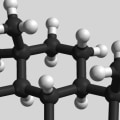Testosterone secretion has a diurnal secretion pattern. The maximum levels are reached in the morning between 7:00 and 10:00, a minimum is observed in the afternoon and the levels start to rise again at night. He's a little quieter than his morning self, but he's still not left empty-handed. As a result, he's still optimistic, motivated, and focused, but he's not that easy to annoy (that banged finger would probably cause a much shorter, less intense flurry of rudeness).
You are more open to working with others than to working alone. Testosterone levels peak around age 18 or 19 before declining throughout the rest of adulthood. Testosterone levels in the womb can also affect the functioning of the right and left brain, according to a study that looked at 60 children. Men have a 24-hour cycle, where their testosterone levels are higher in the morning and lower at night.
Which basically means that they are perfectly synchronized with the standard working day. The morning is a good time for men, as their testosterone levels are at their peak and so are men. Their hormones keep them energetic, talkative, and focused so they're ready to have a productive day. This can continue into the afternoon, as your hormone levels have dropped, but only slightly.
In fact, the fluctuation in hormone levels is so minimal that it can go completely unnoticed. It's only at night that tiredness really affects them, but luckily it's the time when everyone goes to sleep. Due to the natural diurnal variation in serum testosterone levels, the guidelines recommend collecting the sample early in the morning. Once you are released from the fog of sleep, high testosterone levels make you more energetic, communicative, aggressive, focused, competitive, independent, impulsive, and self-confident.
The authors recommend that men with erectile dysfunction who are 45 years old can have their total testosterone removed any time before 2 in the afternoon. Men who are trying to control their testosterone levels may turn to estrogen blockers to help balance their hormones. There are men who experience mood changes, fatigue and some type of PMS due to fluctuating testosterone levels. This study confirms previous research showing that the daytime effect on testosterone levels decreases with age, at least in this group of men with erectile dysfunction.
Increased public awareness of androgen deficiency has led to more men being tested for testosterone levels. In addition, this study did not evaluate the evolution of testosterone levels in the late afternoon and evening, and it is not clear if the levels can be extracted even later in the day. In a retrospective analysis of 2,569 patients of men with erectile dysfunction to measure total testosterone and extraction times, men were compared by age group and variability of total testosterone. Because the natural daytime variation in testosterone levels tends to decrease with age, it's acceptable to test men age 45 or older before 2 p.m.
Low testosterone levels in women can also cause fertility problems, as well as weak bones and loss of libido. During these peak hours of testosterone, you may also get angry more easily (for example, if you hit your toe, you could lose your upper part) and are more likely to say “no” to a favor or request.






